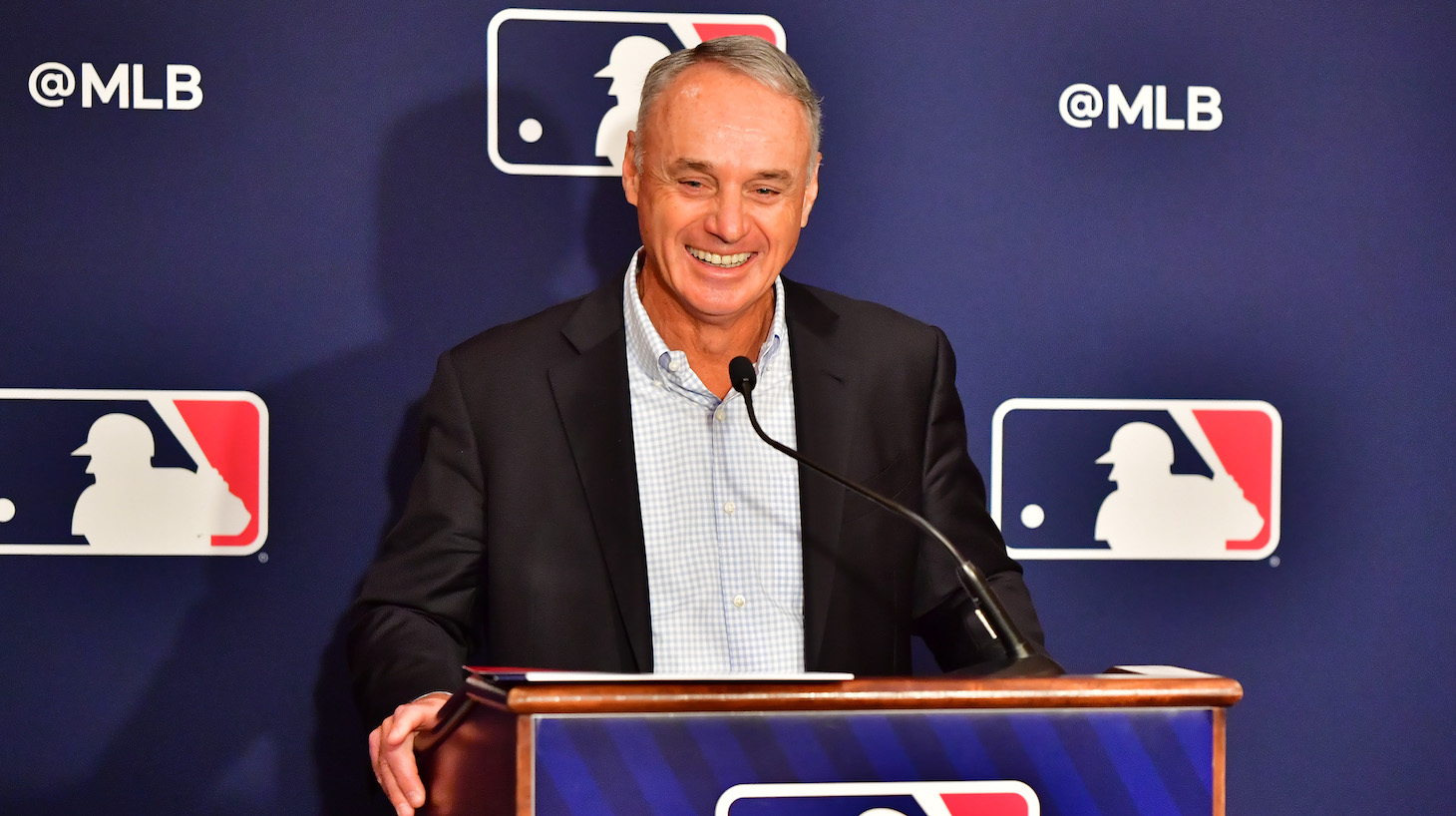It was probably always pollyannaish to expect opening day to fall on, you know, Opening Day; the owners waiting 43 days before offering their first CBA proposal to the players made that clear. But it feels even less likely this morning, after a "hostile" meeting on Saturday that left the players "furious" with MLB's intransigence. It is the story of the lockout, and quite honestly of the last couple of CBAs: the union looking to play ball, and the owners taking their ball and going home.
The sides have met every day this week, which could have been a good thing—hey, they're talking—but instead appears to have hammered home just how far apart they are and how little one side is willing to move. As a result, it feels safe to expect that when tomorrow's (owner-imposed) deadline for a deal in order for the regular season to start on time roll around, the (owner-imposed) lockout will continue. At least there's no question of who's to blame.
If you would like the nuts and bolts of the proposals exchanged, you can find that here. But I don't blame you if a bunch of numbers just sounds like white noise. In plainer terms, what has happened is that the two sides spent most of the week making concessions on what they both consider minor, peripheral issues. It was progress, and if not progress on the big stuff, it represented hope that momentum and mutual concessions would lead to serious movement as the deadline ticked closer. It sparked something resembling optimism. And then, in the last couple of days, the MLBPA finally started to make concessions on significant sticking points. The owners responded to the players' willingness to reach a deal by refusing to budge.
The players made a large concession in the changes they're seeking on arbitration; the owners did not counter at all, and refuse to countenance any changes to that team-friendly status quo. The players dropped the size of a reduction they're seeking in revenue sharing; the owners refused to consider any reduction whatsoever. The players made a small but real concession on the competitive balance tax, which has been one of the big sticking points in negotiations; owners responded by "only" demanding that the first-tier tax rate be raised from 20 percent to 45 percent, instead of the 50 percent they had previously sought.
In the places MLB was willing to cede some ground to the players, they did so only in exchange for much bigger concessions the other way—including stuff they are just now bringing to the table for the first time. The owners indicated a willingness to allow a universal DH, to install a partial draft lottery, and to put a limit on the number of times a player could be optioned to the minors each year. Sounds good, right? But in that counterproposal, they demanded a surely lucrative expansion of the playoffs to 14 teams and introduced an entirely new demand to be able to make on-field rule changes with 45 days' notice and without the consent of the players. It was this counterproposal that so incensed the players that they reportedly considered walking out of Saturday's negotiations—not because the exchange was imbalanced in favor of the owners, though it was, but because it signaled that MLB is not willing to meet a serious offer with one of its own. Only one side is responsible for this lockout in the first place, and only the other side seems keen on ending it.
So what to make of MLB's obstinacy? It could very well be that the owners are more than willing to lose as many games as it takes to crack the players. They can afford to; almost all the owners are billionaires, while roughly half the players make less than a million and get on average less than six years of earning power. That strategy would look an awful lot like what's happening: a refusal to concede a damn thing as they sit back and let the other side grow more desperate. This could also be a case of the owners simply waiting as close to the deadline as possible to start getting serious, and letting the union lower its demands before the negotiating even really begins. There's a third option here too, perhaps the most ominous of all: The big-market and small-market owners might be hopelessly divided on what they seek to gain, and that lack of consensus and strategy on the MLB side could make any progress hard to come by, especially given management's incentives to do nothing.
No matter the case, it's bad, is what I'm trying to convey. Quite bad. (If you want to feel good for a second, stare at this Jon Heyman tweet, but don't let yourself spend too long believing it.) So while it's going to suck when April arrives and there's no baseball on, you can do your part by remembering two things. First, whose fault that is, and second, that your frustration with a lack of baseball to watch pales in importance when compared to getting a fair deal for the people who play it.






